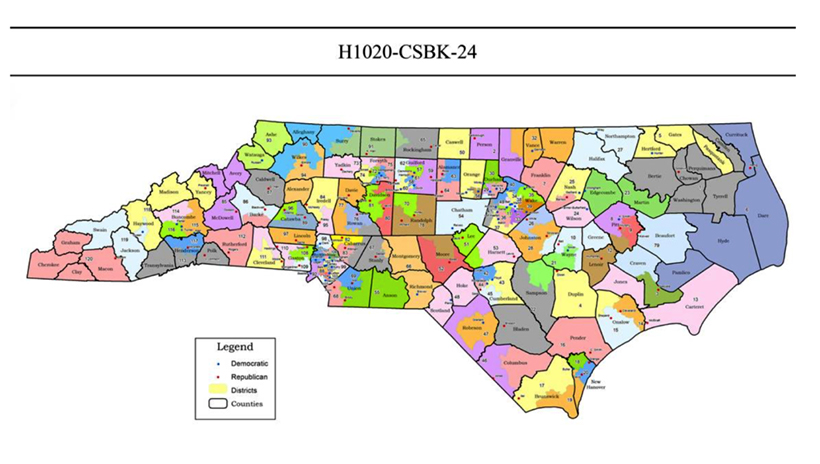House Passes New Legislative Maps After Grueling Debate | Eastern North Carolina Now
One down. One to go. The House passed a new district map, and it’s on its way to the Senate.


|
strirring similar demonic rhetoric that led to Trump shooting
Published: Monday, July 15th, 2024 @ 8:42 pm
By: John Steed
|
|
financial firm tied to globalist WEF
Published: Monday, July 15th, 2024 @ 8:26 pm
By: John Steed
|
|
At least one person was shot and killed during an assassination attempt on former President Donald Trump on Saturday at a political rally in Pennsylvania in which the suspected gunman was also “neutralized,” according to the U.S. Secret Service.
Published: Monday, July 15th, 2024 @ 5:44 pm
By: Daily Wire
|
|
violated appointments clause of Constitution
Published: Monday, July 15th, 2024 @ 10:29 am
By: John Steed
|
|
As everyone now knows, the U.S. Supreme Court's ruling to grant presidents immunity for "official acts" has given Donald Trump unlimited power to do literally anything he wants with zero consequences whatsoever.
Published: Monday, July 15th, 2024 @ 4:13 am
By: Babylon Bee
|
|
President Joe Biden formally rejected on Monday a bill in Congress that would require individuals to show proof of U.S. citizenship to register to vote in elections for federal office.
Published: Sunday, July 14th, 2024 @ 4:04 pm
By: Daily Wire
|
|
what about THEIR boss Mayorkas?
Published: Sunday, July 14th, 2024 @ 1:36 pm
By: John Steed
|
|
MSM media and Democrats have falsely called Trump a dictator and Hitler
Published: Sunday, July 14th, 2024 @ 10:50 am
By: John Steed
|
|
False gods into days culture
Published: Saturday, July 13th, 2024 @ 2:16 pm
By: Countrygirl1411
|